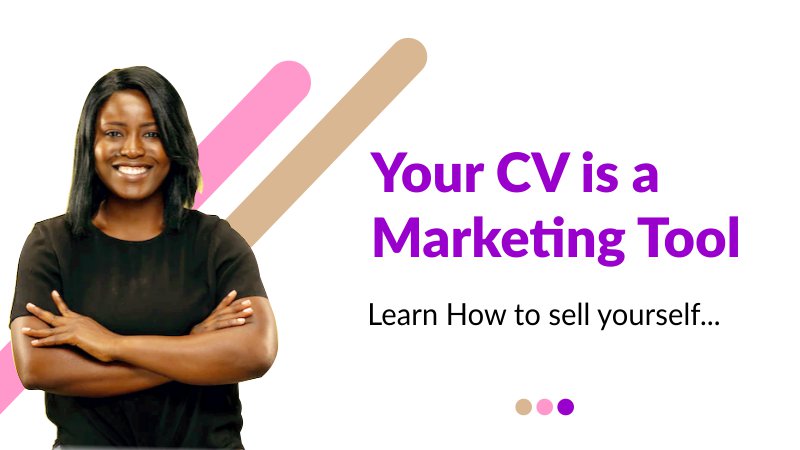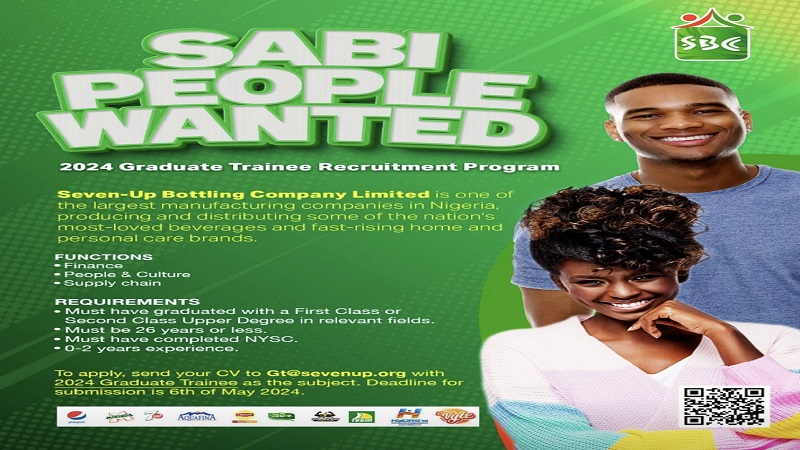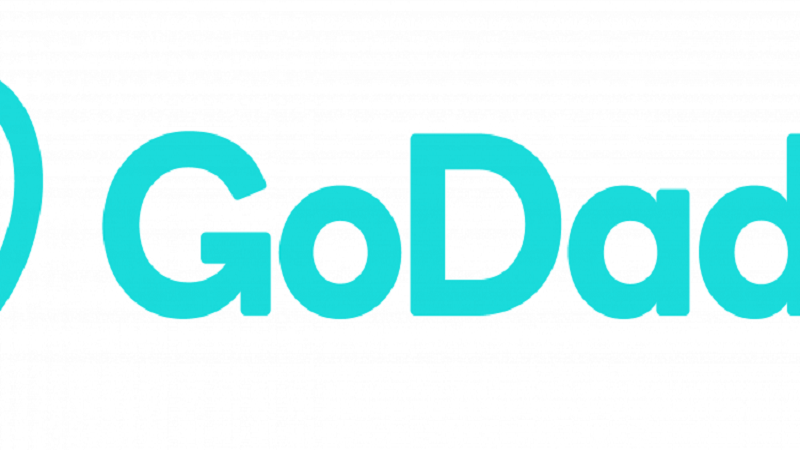Latest News on Our Blog

HOW TO WRITE YOUR CV IN A WAY THAT EVERY RECRUITER WILL DESIRE TO INVITE YOU FOR AN INTERVIEW
Do you know that most graduate applicant don’t get invited for interviews because of the ATS software? Recruiters and Employers have limited time to go through thousands of CVs and Resumes submitted by Applicants, so the ATS software is adopted to handle such overwhelming task. As good as this innovation may seem especially for recruiters, it has become the undoing of a lot of applicants.
In this Article I will show you:
- What an ATS friendly resume is.
- How to make a resume ATS compliant.
- Examples of ATS-friendly resume templates.
Stay with me let me show you how…
Applicant Tracking Systems (ATS) are software applications that scan resumes and other job recruitment documents for relevant keywords such as skills, job titles, and educational background. To pass the ATS scan, your resume has to be formatted properly, and include the right words.
If you want to get to the interviewing stage, you have to make your Resume ATS friendly: use an ATS compliant template, add the right keywords, and make it a great read for the actual human recruiter.
Your CV is a marketing tool that convinces your recruiter that you are the best candidate for the role
How to Prepare Your CV for the ATS
- Carefully tailor your CV to the job description every single time you apply. Your CV is a project; make sure you have the job description in front of you while you update your CV.
- Design well: Keep your CV simple. Use Traditional fonts like Helvetica, Garamond, or Georgia. Don’t use tables or columns. No header or footer as the ATS will not read those.
- Use standard CV section Heading like “Work experience of Academic Qualification”, rather than (Where I’ve been).
- Use the required format requested by the recruiters (PDF, Doc, etc).
CV As A Marketing Tool
You CV is a marketing tool that convinces your recruiters that you are the best candidate for the role.
Recruiters has a lot of CV to go through and they have little time ad possible reviewing your CV. This means you have to sell yourself as quickly as possible.
Your CV is not your autobiography, it’s not an avenue when you should say everything about yourself, and rather you should focus on necessary information that presents you as the best candidate for the role.
When preparing your CV, you should note the following:
- How relevant are the skills and experience to the role? Does it show that you are the right candidate for the job?
- Is your layout or design clear enough?
- Are there any errors or grammatical mistakes?
- Are there any gaps or years you were idle? Do you have an explanation for them?
- Is the information on your CV genuine? Are you able to explain all you have there?
- Did you do your research in preparing your CV? Do you know what the role is about?
Again, always remember that your CV should market you and convince the recruiter that you are the most qualified for the role by showcasing your skills, work experience, Academic background and of course your achievements.
How to structure Your Professional CV
- Contact Details: The first thing that should appear in your CV is your contact details; here you only need to put your full name, address, email and phone number
- Personal Profile: A short paragraph explaining your whole career: Your skills, you qualifications, experiences and what value you will bring on board, keep it short and precise.
- Experience: Next is your professional and work experience session. List your work experience in a reverse chronological order starting with your current position and going to the older one. State the year, duration and position held. Instead of jumping straight down and listing your responsibility, what will be unique will be to putt you Achievements. Achievements are what set you apart from the rest.
- Skills and area of expertise: Be sure not to lie because your interviewers will work with this information when interviewing you.
- Education and Qualification.
CV Writing Tips
- Tailor your CV to each job advert by using the exact keywords and skills mentioned in the advert
- Keep your CV short and simple
- Only include relevant information
- Clearly state your Achievements and how you achieved it; if possible quantify
- Check for spelling errors and grammatical errors
- Be honest, do not include jobs you didn’t do or false documents.
Now that you have a good CV, what’s next?
Cover Letter
Your cover letter serves as an introduction to your CV and it is written with a specific job in mind.
The main role of a cover letter is to introduce yourself to the employer and encourage them to read your CV. It’s also a way to show yourself that you are the right person for the job
It clearly state why you are the best talent for the position and it should be clear, concise, show your knowledge of the company, state what position you are applying for, why you are qualified and your personal experience.
Structure of your cover letter
Paragraph One (2 sentences)
- Who are you?
- How did you find the application?
- What you are applying for and why are you interested in the role
Paragraph Two (3-4 sentences)
- Summary of your (Knowledge, skills, experience)
Paragraph Three (3-4 sentences)
- What’s your magic (what makes you exceptional?)
- What connects you to the industry, company and job?
- What makes you fit and why should you be hired
- Show you knowledge about the company and culture.
Paragraph Four (1-2 sentences)
- Resume attached
- Call to action on intent to follow-up
- Thanks
How do you search for Jobs?
- Narrow your focus considering the following:
- Career goal
- Desired role
- Industry
- Type of Organization
- Identify the required experience, skills, qualifications, certifications, training, and education that employers are asking for within the position you want to be employed. Alternatively, you should find jobs that match you current experience
- Build your network: The most important way to get jobs in Nigeria is you network. 70% of jobs are never posted online or newspaper advert, even if they are, someone must send you the link. Be intentional about growing your network especially your peers.
- Social Media: (Know how to market yourself)
- Make sure the content you post online is appropriate
- Market your skills and experiences
- Follow hey leaders with large impacts
- Follow organizations or companies that interest you
- Be aware of your internet trail and social media activities
How to Prepare for Interview
- Prepare for potential questions
- Research the company
- Your CV: prepare to explain any problematic aspect of your CV such as leaving a job or long gap between jobs
- Job Role: Fully understand the role that you are applying for by studying the job description and doing extra research on what that role typically entails
- Prepare your own questions: Always have questions to ask the interviewer
- Choose you outfit: pick the power suit that builds your confidence
- Be calm and composed: They want a good candidate as well as you want a good job.
Common Interview Questions
- Tell me about yourself
- What are you strengths?
- What is your weakness?
- What makes you a good fit for the role?
- Why should we hire you?
- How long will you expect to work with us if hired?
- What are you salary expectation?
An interviewer will always ask you, “Do you have questions for us?” Your answer should always be a “YES”.
Here are interview questions you can ask:
- What does a typical workday look like for this job role?
- How would you like to describe the corporate culture?
- What do you look out for in a member of your team?
- You could also ask any other question you really have about the company.
Guide to Salary Negotiation
One of the most important questions you will be asked in an interview is “What’s your salary expectation?”
This question is important because you should have a salary expectation.
When you are asked the question, you should be careful to be:
- Confident
- Do your research: You have to be able to back you request with industry market and business fact to support you expectation.
- Have answers to difficult questions: You might be asked what you earn in your previous role
- Look at the whole package
- Remain calm and make it work. A negotiation is about having a conversation. Every conversation you have with a Hiring Manger will make a lasting impression.



